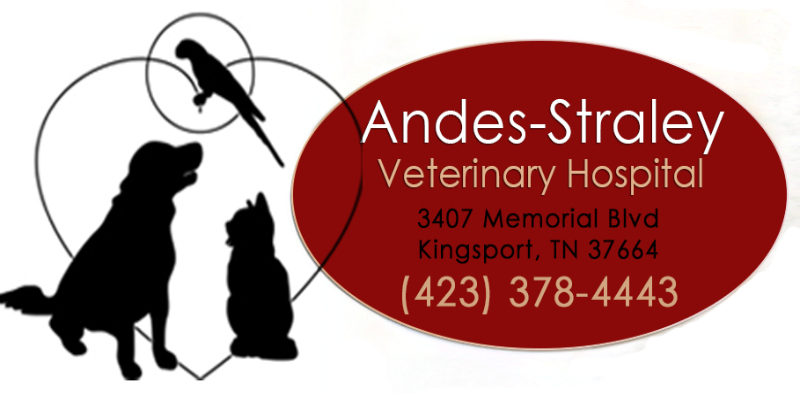Essential Pet First Aid Tips for Every Pet Owner
Our furry companions bring so much joy into our lives, but emergencies can happen anytime. Being prepared with basic pet first aid knowledge can make a world of difference in critical situations. Here at Andes-Straley Veterinary Hospital, we want to empower you to handle minor injuries and emergencies until you can get your pet to professional care.
Assemble a Pet First-Aid Kit:
The first step is building a pet first-aid kit. This kit should be easy to find and contain essential supplies for common emergencies. Here are some key items to include:
- Non-stick sterile pads and gauze: For cleaning wounds.
- Adhesive bandages and wraps: To secure dressings.
- Blunt-tipped scissors and tweezers: For removing debris or splinters.
- Veterinary-approved antiseptic wipes: For cleaning wounds.
- Instant cold compress: To reduce swelling from minor injuries.
- Digital thermometer: To check your pet’s temperature.
- Eye dropper: For administering medication or fluids orally.
- Hydrogen peroxide (3%) : To induce vomiting (only use under veterinary instruction).
- Disposable gloves: To protect yourself during wound care.
- Muzzle (optional): For safety in case of a stressed or anxious pet.
- Pet carrier: For safe transport to the vet.
Remember: Never administer medications to your pet unless specifically instructed by a veterinarian.
Common Pet Emergencies and First Aid Actions:
- Wounds: For minor cuts or scrapes, gently clean the area with a veterinary antiseptic wipe and apply gentle pressure with sterile gauze to stop any bleeding. Cover the wound with a non-stick pad and secure it with a bandage. Monitor the wound for signs of infection and seek veterinary attention if necessary.
- Bleeding: Apply direct pressure to the wound with a clean cloth or gauze pad. If bleeding is severe, seek immediate veterinary attention.
- Choking: If your pet is choking, try to remove the obstruction with your fingers if it’s visible and easily accessible. If unsuccessful, perform the Heimlich maneuver for pets (modified based on the size of your animal). Seek immediate veterinary attention.
- Diarrhea or Vomiting: Withhold food for a few hours and offer small amounts of water frequently. If vomiting or diarrhea persists, consult your veterinarian.
- Heatstroke: Move your pet to a cool, shaded area and offer cool water. Wet down their fur with cool (not cold) water and seek immediate veterinary attention.
- Allergic Reactions: If your pet is experiencing swelling, difficulty breathing, or hives, remove them from the suspected allergen and seek immediate veterinary attention.
Remember:
- Stay calm and assess the situation.
- If the situation seems serious or you are unsure how to proceed, err on the side of caution and seek immediate veterinary attention.
- When calling your veterinarian, be prepared to describe the situation and your pet’s symptoms in detail.
We’re Here for You:
At Andes-Straley Veterinary Hospital, we understand the importance of prompt and effective veterinary care. While these tips can be helpful for minor emergencies, we recommend scheduling regular checkups for your pet. This allows us to monitor their overall health and identify potential issues early on.
Having a basic understanding of pet first aid and keeping a well-stocked kit readily available can give you peace of mind and empower you to act quickly in an emergency. For more information on pet first aid or to schedule an appointment with one of our experienced veterinarians, contact Andes-Straley Veterinary Hospital today.



